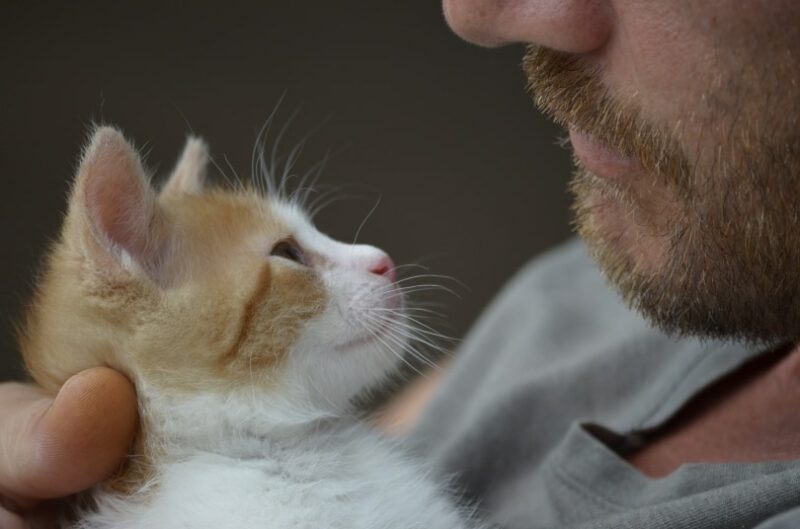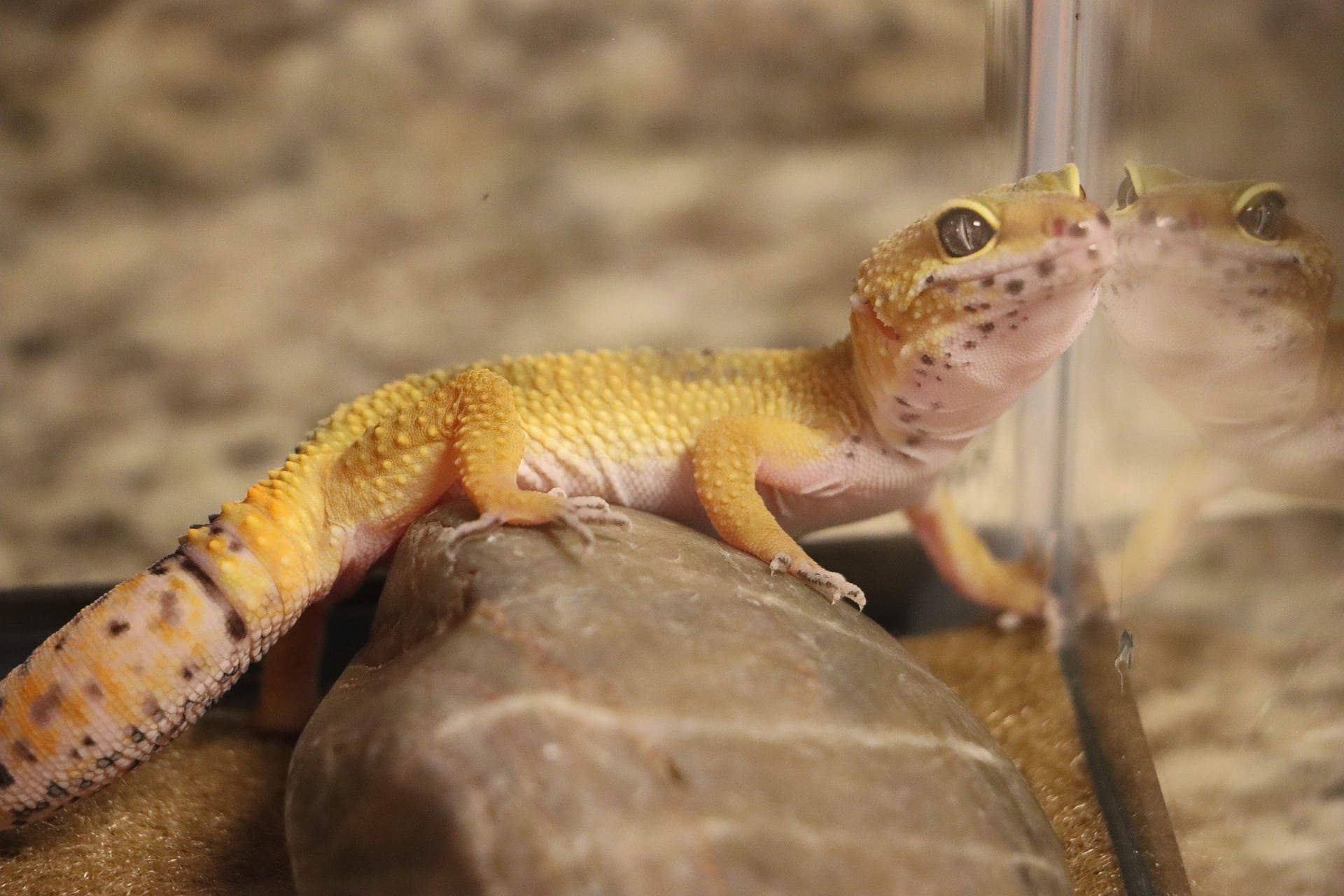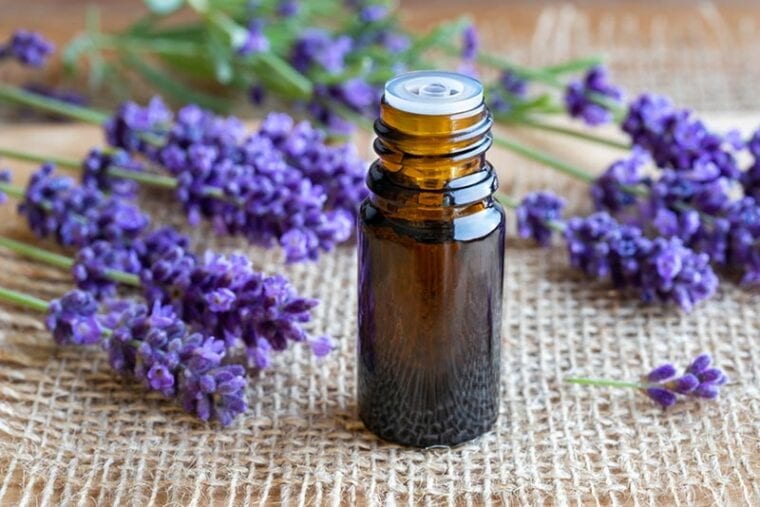
Click to Skip Ahead
Several dog owners have switched their products to safer alternatives in the last few years. You may have heard of people using essential oils, such as lavender oil, which has many benefits for humans, but does lavender oil kill fleas?
Lavender oil does not kill fleas, but it can repel them. However, essential oils are harmful if used incorrectly, so they are generally not recommended for use with pets. In this article, we’ll discuss lavender oil and its effectiveness as a repellent to help you make a more informed decision before using it.
Is Lavender Oil Effective for Killing Fleas?
Lavender oil does not kill fleas, but it can work to repel them. It is unsafe to put essential oils directly on your pets as they are harmful,1 especially if they are not diluted. If the formula is too concentrated or undiluted, it can lead to toxicity.
100% undiluted lavender oil can be toxic and should never be applied topically to your pet. It is also ineffective in killing fleas; although it may work in repelling fleas, it may cause more harm than good.
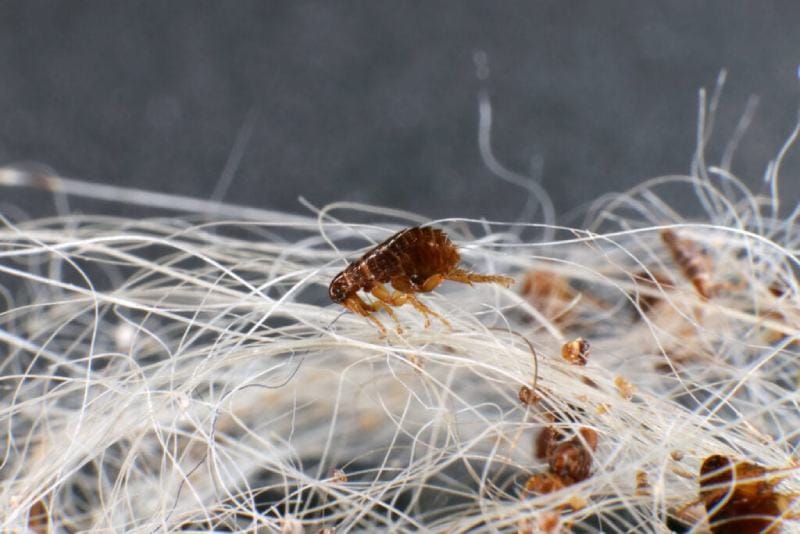
Is Lavender Oil Dangerous for Pets?
The concentration of essential oils in products, including lavender oil, varies between brands, so providing the correct toxicology information is difficult. Lavender oil is generally one essential that is more trusted, especially for its use for stress and anxiety in pets and humans.
However, essential oils are not carefully regulated as medications,2 and because the potency varies between batches and brands, it is difficult to know exactly how much has been administered. The risk of misusing lavender oil is so significant that most veterinarians discourage using it.
If it is used topically, there is a risk of skin irritations and rashes developing. If it is too concentrated and your pet accidentally licks it, it can cause vomiting and diarrhea. Inhaling too much lavender oil can also lead to respiratory distress and coughing. Contact your veterinarian right away if you believe that your pet has accidentally consumed a product containing lavender oil.
You may find that some pet shampoos contain lavender. The dilutions in these products are generally so low that they are safe, with only a hint of fragrance.
Using Lavender Oil to Repel Fleas
There is not a lot of information regarding using lavender oil to repel fleas, and we are not 100% confident about its effectiveness as a pesticide. If your cat or dog has fleas, there are also fleas in your home. The eggs and flea larvae can hide in your home’s furniture, carpets, and pet blankets, so to stop the life cycle completely, you need to eradicate them all. Using a lavender oil solution can be beneficial for repelling fleas on surfaces, and while it won’t work to get rid of an infestation, it can help to keep fleas at bay.
If you are looking for an essential oil to use in the home to help eliminate fleas, Cedarwood Oil is a more effective option that is also safer to use around your pets. However, we would still advise against using it directly on animals, and always dilute the oil before using it in the house.

What to Do if You Suspect Your Pet Has Ingested Lavender Oil
If you know or suspect that your pet has ingested lavender oil, you need to act fast. Call the pet poison helpline right away and head to your veterinarian immediately. Never try to induce vomiting or use home remedies such as activated charcoal; it can make the situation worse if not done correctly. If your pet has lavender oil on their coat or skin, wash it off immediately.
How You Can Get Rid of Fleas Safely
Due to the risk of using lavender oil for fleas, it’s best not to use it as a flea treatment or preventative. Regarding flea treatments, you ideally want something that will repel and kill fleas. When you discover fleas on your pet, the best and safest course of action is to take them to the vet.
When trying to combat fleas without the use of strong chemicals, it is worth noting that most natural or homeopathic remedies will only really be useful against a very mild problem. If you are dealing with severe or repeated infestations, we would always recommend talking to your veterinarian about the best options for getting rid of fleas on your pet and the environment, and following a strict protocol to reduce the risks of resistance developing.
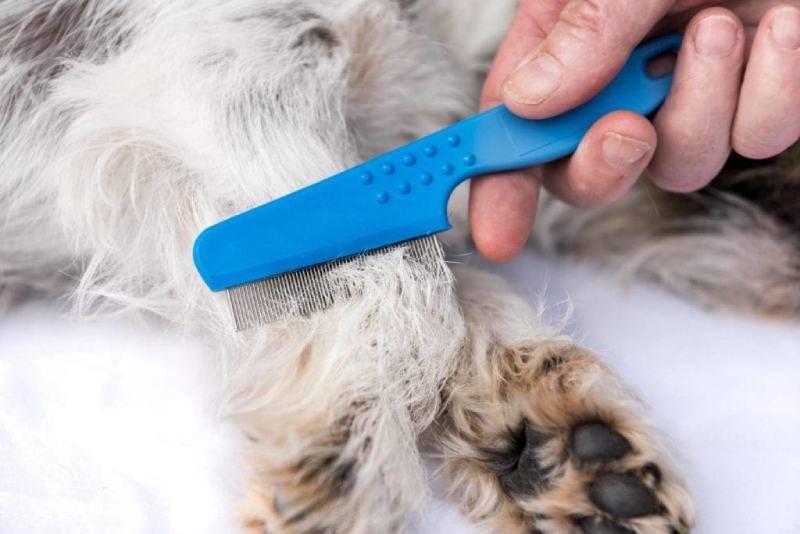
The most effective flea treatments are available only with a veterinary prescription. Here are some recommended flea & tick treatments for dogs and for cats. There are also some more natural product options available, as well as some homeopathic remedies to use in the home & environment.
We would recommend using vet recommended treatments in the first instance at least. Once you have eliminated the flea problem, more natural preparations may be effective in preventing reinfestation.
Conclusion
An effective flea treatment must kill all flea life stages. Although lavender oil may repel fleas, it cannot kill them, and can be very harmful to your pets. Therefore, we suggest looking for a safer alternative. Lavender oil can be dangerous if it is misused. Your veterinarian can provide a safe flea treatment, and if you decide to use lavender oil in your home for other reasons, keep it away from your pets.
See also:
- 10 Free DIY Tortoise Enclosure Plans You Can Make Today (With Pictures)
- Does Lemon Juice Kill Fleas? Vet-Reviewed Effectiveness & Alternatives
Featured Image Credit: Madeleine Steinbach, Shutterstock







